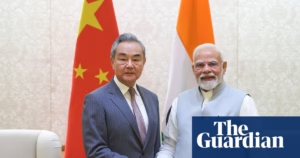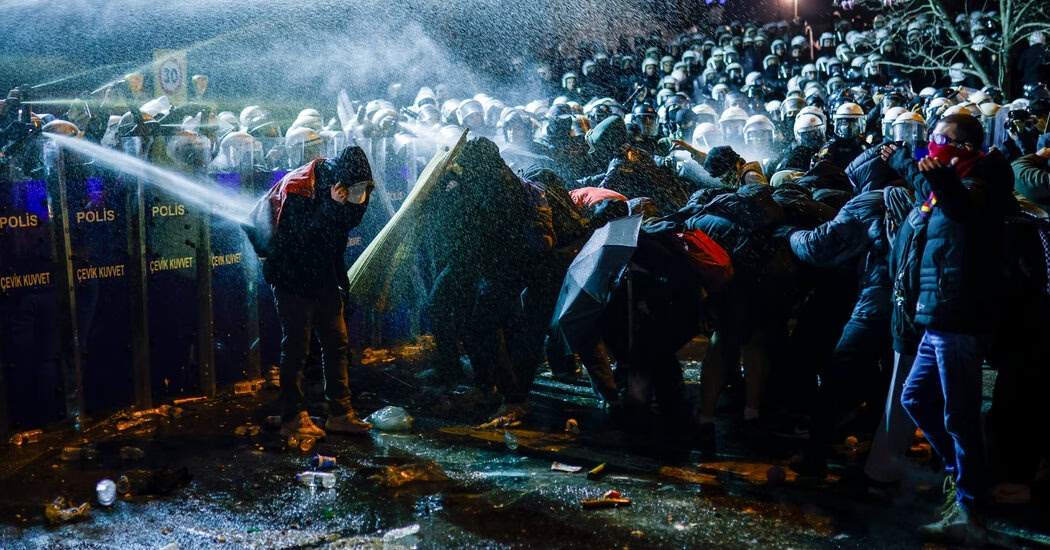Over the past two decades, countries like Turkey, Hungary, Venezuela, and India have demonstrated how democracy can deteriorate into “competitive authoritarianism,” a system where elections retain significance but leaders manipulate the rules for their advantage while consistently violating civil liberties. Today, we are witnessing the consequences when even a partial democracy poses a substantial threat to authoritarian regimes.
The most recent example comes from Turkey, where protests have erupted nationwide following the arrest of Ekrem Imamoglu, Istanbul’s mayor and the country’s leading opposition figure. The government accused him of bribery, bid-rigging, and misusing citizens’ personal data, charges he has denied. The arrest, experts say, clearly signals that President Recep Tayyip Erdogan is no longer willing to give the opposition a legitimate chance to win elections.
Mr. Erdogan seems to have recognized that even with manipulated systems, he might not be able to defeat Mr. Imamoglu, according to Lisel Hintz, a political scientist at Johns Hopkins University who studies Turkish politics. “This move is an anticipatory one, aiming to remove the individual who could potentially challenge Erdogan, marking a clear shift from competitive authoritarianism to full authoritarianism,” she commented.
Turkey has not yet reached the level of countries like Russia, where meaningful political opposition to President Vladimir Putin’s control is scarce. However, the government’s actions are seen as a significant step in that direction. To understand this, it’s helpful to consider elections as a kind of cost-benefit equation for authoritarian leaders to solve.
On one side of the equation are the benefits of elections, which are significant for leaders not particularly invested in democratic freedoms. Winning validates a leader’s popularity and power, bolstering the government’s legitimacy both domestically and internationally. It also sends a signal to key constituencies that they should continue supporting the government.
On the other side are the risks of holding competitive elections: the incumbent can lose. This is what happened in Venezuela last year when President Nicolás Maduro’s efforts to secure victory through manipulation failed, and his opponent won by a landslide.
In India, the situation took a different turn. Prime Minister Narendra Modi attempted to weaken the opposition by arresting its leaders, restricting access to funds, and limiting media freedom. Despite this, his party lost its majority in parliament, forcing him to govern in coalition, thereby limiting his power.
Recent events in Turkey have made it less attractive for Mr. Erdogan to allow competitive elections. The potential cost of a relatively open election grew as Mr. Imamoglu gained popularity. High inflation, exacerbated by Mr. Erdogan’s economic policies, has made many Turks angry.
Additionally, the benefits of an open election have decreased, largely due to the geopolitical ripple effects of President Trump’s re-election. The Trump administration does not seem to value the promotion of democracy abroad, and Trump appears to have an affinity for authoritarian leaders. Furthermore, waning U.S. support for NATO and defending Europe has made Turkey, with its substantial military and defense industry, more influential.
Turkey’s rising inflation and economic difficulties have made it challenging for the government to maintain its popularity. This is partly due to competitive authoritarianism, which tends to reward loyalty over capability. The government’s arrest of Mr. Imamoglu and other opposition figures has triggered significant backlash, leading to the largest demonstrations the country has seen in over a decade.
However, it is unclear whether the protests can make a difference. Years of democratic backsliding have insulated the government from many consequences of its heavy-handed rule. Such backsliding tends to be incremental and cumulative, avoiding immediate public condemnation but making eventual condemnation less effective.
Feedbacks? Please send thoughts and suggestions to interpreter@nytimes.com.
Source: https://www.nytimes.com/2025/03/28/world/middleeast/for-some-autocrats-even-rigged-elections-can-be-too-much-of-a-threat.html





